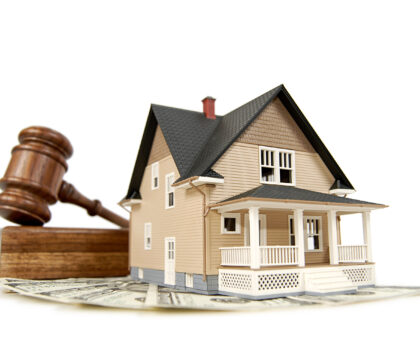Introduction
Energy efficiency is a critical focus in building engineering, as the construction and operation of buildings have a significant impact on energy consumption and greenhouse gas emissions. Building engineers play a crucial role in designing and implementing energy-efficient solutions that reduce energy usage, lower operating costs, and minimize the environmental footprint of buildings. This article explores the importance of energy efficiency in building engineering, highlighting green solutions for a sustainable future.
1. The Significance of Energy Efficiency in Building Engineering
Energy efficiency is crucial in building engineering due to its environmental and economic impact. Buildings account for a significant portion of global energy consumption, and their energy usage contributes to greenhouse gas emissions and climate change. By prioritizing energy efficiency, building engineers can help mitigate these impacts while promoting sustainability and cost savings.
Energy-efficient buildings reduce the demand for energy, decreasing reliance on fossil fuels and reducing greenhouse gas emissions. Additionally, improved energy efficiency lowers operating costs for building owners and occupants, making buildings more economically sustainable in the long run.
2. Building Envelope and Insulation
The building envelope and insulation play a crucial role in energy efficiency. Building engineers focus on designing and constructing well-insulated building envelopes to minimize heat transfer between the interior and exterior environments. This reduces the need for excessive heating or cooling, resulting in lower energy consumption.
Insulation materials, such as fiberglass, cellulose, or foam, are strategically applied in walls, roofs, and floors to minimize thermal bridging and optimize energy performance. Proper insulation and airtight construction help maintain a comfortable indoor environment while reducing the need for mechanical heating or cooling systems.
3. Energy-Efficient Heating, Ventilation, and Air Conditioning (HVAC) Systems
Heating, Ventilation, and Air Conditioning (HVAC) systems account for a significant portion of a building’s energy consumption. Building engineers focus on integrating energy-efficient HVAC systems that optimize thermal comfort while minimizing energy usage.
High-efficiency HVAC equipment, such as condensing boilers, heat pumps, and variable refrigerant flow systems, help reduce energy consumption and improve system performance. Building engineers also prioritize proper system sizing, duct design, and insulation to minimize energy losses and maximize efficiency.
Advanced controls and sensors, such as occupancy sensors and programmable thermostats, enable precise temperature and ventilation control, ensuring energy is only used when necessary. Regular maintenance and system optimization further enhance the efficiency of HVAC systems.
4. Lighting Optimization
Lighting optimization is a key aspect of energy efficiency in building engineering. Building engineers like CityTechEng employ various strategies to reduce lighting energy consumption while maintaining adequate illumination levels.
Energy-efficient lighting technologies, such as light-emitting diodes (LEDs) and compact fluorescent lamps (CFLs), are widely used due to their longer lifespan and reduced energy consumption compared to traditional incandescent bulbs. Building engineers also implement lighting controls, including occupancy sensors, daylight sensors, and dimmers, to optimize lighting usage based on occupancy and natural light availability.
By incorporating efficient lighting design and controls, building engineers minimize energy waste and contribute to overall energy efficiency in buildings.
5. Smart Building Automation and Controls
Smart building automation and controls play a significant role in optimizing energy usage in buildings. Building engineers leverage advanced technologies and systems to monitor, control, and optimize various building functions in real time.
Building automation systems integrate and regulate building systems such as lighting, HVAC, and security. Smart controls enable centralized management, data analytics, and energy optimization. Occupancy sensors, smart thermostats, and automated shading systems adapt to changing occupancy and environmental conditions, reducing energy consumption without sacrificing comfort.
By implementing smart building automation and controls, building engineers can achieve substantial energy savings and improve overall building performance.
6. Renewable Energy Integration
Renewable energy integration is a key component of energy efficiency in building engineering. Building engineers explore the potential for on-site renewable energy generation to offset the building’s energy demand.
Solar photovoltaic (PV) systems, wind turbines, and geothermal systems are common renewable energy solutions. Building engineers assess the site’s renewable energy resources, perform feasibility studies, and design systems that optimize energy generation and utilization.
Integrating renewable energy sources reduces reliance on grid-supplied electricity and lowers greenhouse gas emissions. Building engineers ensure proper installation, maintenance, and monitoring of renewable energy systems to maximize their effectiveness and contribute to a sustainable energy future.
7. Water-Energy Nexus
The water-energy nexus is an important consideration in building engineering for energy efficiency. Building engineers recognize the interconnectedness of water and energy consumption and implement strategies to minimize waste in both areas.
Efficient plumbing fixtures, such as low-flow toilets, faucets, and showerheads, reduce water consumption, resulting in lower energy requirements for water heating. Water reuse systems, such as rainwater harvesting and graywater recycling, decrease the need for energy-intensive water treatment and distribution.
Building engineers also prioritize water-efficient landscaping and irrigation systems to minimize water usage. By reducing water consumption, energy requirements associated with water treatment, pumping, and heating are effectively reduced.
8. Life Cycle Assessment and Sustainable Design
Life Cycle Assessment (LCA) and sustainable design principles are integral to energy efficiency in building engineering. Building engineers consider the environmental impact of materials, construction processes, and building operation throughout the entire life cycle.
By conducting comprehensive LCAs, building engineers can identify opportunities for improvement and make informed decisions regarding materials, systems, and operational practices. Sustainable design principles prioritize energy-efficient construction, material selection, waste reduction, and occupant comfort.
Building engineers like Damac collaborate with architects, contractors, and stakeholders to integrate sustainable design principles from the initial design stage to building operation. This holistic approach ensures that energy efficiency and sustainability are ingrained in every aspect of the building’s lifecycle.
Conclusion
Energy efficiency is paramount in building engineering, driving the adoption of green solutions for a sustainable future. Building engineers play a pivotal role in designing and implementing energy-efficient strategies, considering aspects such as the building envelope, HVAC systems, lighting, automation, renewable energy, and the water-energy nexus. By prioritizing energy efficiency, building engineers contribute to reducing energy consumption, lowering operating costs, and minimizing the environmental impact of buildings, paving the way for a greener and more sustainable future.



